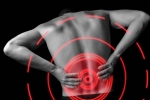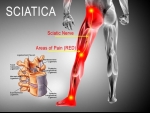Home »
Blog » Pain Management
| Stem Cell, PRP, Acupuncture in Queens & Long Island, New York
Pain Management | Stem Cell, PRP, Acupuncture in Queens & Long Island, New York
ACT focuses on accepting what is happening in the present that may cause a flare-up in symptoms and facing things head-on. Let’s see how ACT can help you. ACT (Acceptance and Commitment Therapy) stems from some of the same concepts as CBT; it helps you to understand your pain, to come to a state of acceptance, and to commit to taking action to live with your chronic condition more effectively. As with CBT, it helps you to empower yourself and improve your life while living with your illness.
Read more
What’s a Cramp? If you’ve ever had a “charley horse” that odd pain in your calf you’ve had a cramp. But they can happen anywhere in your body at any time, even when you’re asleep. No matter where you get them, what’s going on inside is the same: Your muscles suddenly tighten up when you don’t want them to. Several things can bring on cramps, but you can do some things to keep them from happening.
Read more
Talking about and explaining chronic pain is extremely difficult for most. Here are some tips on how to make the conversation easier. A broken leg in the cast automatically triggers sympathetic glances and supportive actions. People rush plump pillows, fetch a glass of water, and do anything else they can do to help the poor fellow with the broken leg. There is no doubt in their mind about the pain he is experiencing.
Read more
While back pain is exceedingly common, it is equally challenging to diagnose, since there is no established guideline or protocol to evaluate this problem. Besides, the typical setting of a 15-minute doctor’s visit is usually not enough to explain, understand, and evaluate everything that’s going on in your achy back. Diagnosing the root cause of back pain requires time, physician expertise, and collaboration between different medical professionals, such as primary care doctors, physical therapists, physiatrists, and orthopedic physicians, to name a few.
Read more
Peripheral Artery Disease (PAD) - With this condition, your limbs -- typically your legs -- don’t get enough blood. It usually happens because your arteries have narrowed. Your legs may feel weak or numb or cramp when you walk. They might feel cold and be an odd color. Some people can manage PAD with habit changes, like quitting smoking. If that doesn’t work, your doctor might give you medicine to treat the problem or help with the pain. But some people need surgery.
Read more
Can Stress make Pain Immortal? we discussed how our emotional state and stress affect how much pain we experience. This article discusses how the absence of emotion regulation skills increases the risk of abusing opioids by taking them other than as prescribed. Abusing opioids increases the risk of addiction and overdose.
Read more
While an adjustable bed may help alleviate your back pain, they’re not for everyone. Here are 3 questions to help you decide if an adjustable bed is worth your hard-earned money. 1. Do You Feel Better in A Reclined Position? As a general rule, people who find relief from back pain while in a reclined position tend to benefit from sleeping in an adjustable bed.
Read more
Sprained Ankle: It’s a tear in the tissues (called ligaments) that hold your ankle bones together. It often happens when your foot rolls sideways. Your ankle may bruise and swell. You might not be able to put weight on it. RICE is the best way to treat it: Rest, Ice for 20 minutes at a time
Compress with an elastic bandage, Elevate your ankle -- lift it above your heart.
A light sprain will get better in a few days. If yours is worse, the doctor may suggest a short cast or walking boot, followed by physical therapy.
Read more
Pain beliefs are a major factor that affects how we experience pain. It can work both for us, and against us! The way we perceive each situation determines how we feel. Our perceptions are strongly influenced by beliefs we develop by thinking the same thoughts repeatedly. Healthy habits of thought result in more positive emotions, less stress, and less pain. Unhealthy habits of thought result in more negative emotions, more stress, and more pain.
Read more
Most people take the action of walking for granted and don’t realize that they might not be walking correctly. Sciatica occurs because a causative factor, such as a bone, disc, or muscle in your lower back impinges on your sciatic nerve roots. When you walk and stand correctly, you align your bones in a more effective way, creating a better pathway for the course of your sciatic nerve.
Read more
Love this Post? Spread the World






















